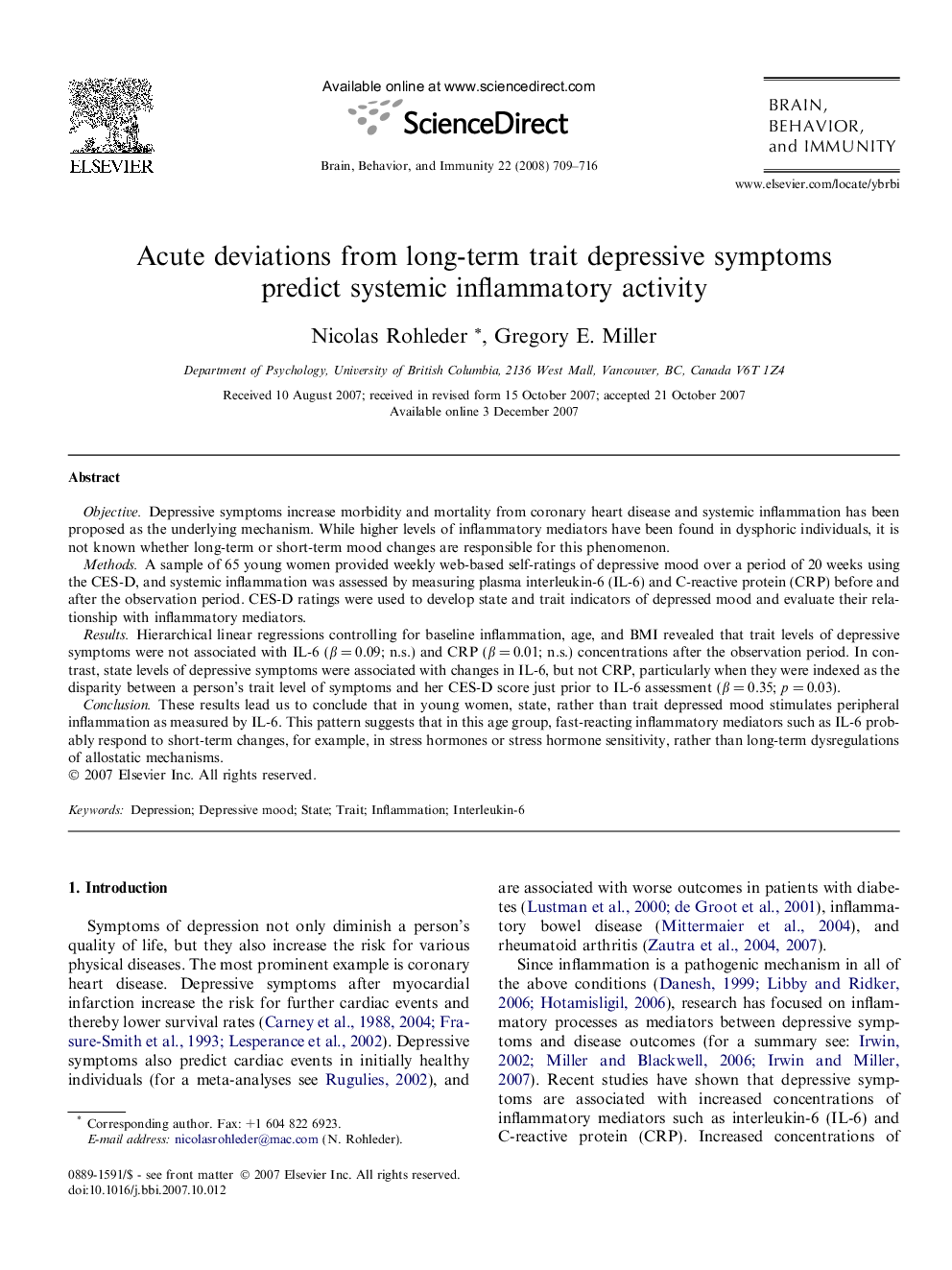| کد مقاله | کد نشریه | سال انتشار | مقاله انگلیسی | نسخه تمام متن |
|---|---|---|---|---|
| 923017 | 921067 | 2008 | 8 صفحه PDF | دانلود رایگان |

ObjectiveDepressive symptoms increase morbidity and mortality from coronary heart disease and systemic inflammation has been proposed as the underlying mechanism. While higher levels of inflammatory mediators have been found in dysphoric individuals, it is not known whether long-term or short-term mood changes are responsible for this phenomenon.MethodsA sample of 65 young women provided weekly web-based self-ratings of depressive mood over a period of 20 weeks using the CES-D, and systemic inflammation was assessed by measuring plasma interleukin-6 (IL-6) and C-reactive protein (CRP) before and after the observation period. CES-D ratings were used to develop state and trait indicators of depressed mood and evaluate their relationship with inflammatory mediators.ResultsHierarchical linear regressions controlling for baseline inflammation, age, and BMI revealed that trait levels of depressive symptoms were not associated with IL-6 (β = 0.09; n.s.) and CRP (β = 0.01; n.s.) concentrations after the observation period. In contrast, state levels of depressive symptoms were associated with changes in IL-6, but not CRP, particularly when they were indexed as the disparity between a person’s trait level of symptoms and her CES-D score just prior to IL-6 assessment (β = 0.35; p = 0.03).ConclusionThese results lead us to conclude that in young women, state, rather than trait depressed mood stimulates peripheral inflammation as measured by IL-6. This pattern suggests that in this age group, fast-reacting inflammatory mediators such as IL-6 probably respond to short-term changes, for example, in stress hormones or stress hormone sensitivity, rather than long-term dysregulations of allostatic mechanisms.
Journal: Brain, Behavior, and Immunity - Volume 22, Issue 5, July 2008, Pages 709–716